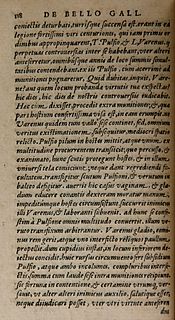
This article concerns the period 49 BC – 40 BC.
"Stealing from Saturn" is the fourth episode of the first season of the television series Rome.
"Pharsalus" is the seventh episode of the first season of the television series Rome.
"Caesarion" is the eighth episode of the first season of the television series Rome.
"Utica" is the ninth episode of the first season of the television series Rome.
"Triumph" is the tenth episode of the first season of the television series Rome.
"The Spoils" is the eleventh episode of the first season of the television series Rome.
"Kalends of February" is the twelfth episode of the first season of the television series Rome.

Atia of the Julii is a character from the HBO/BBC/RAI original television series Rome, played by Polly Walker from 2005 to 2007. The niece of Julius Caesar and mother of Octavian/Augustus and Octavia, she is depicted as a cheerfully amoral and opportunistic manipulator whose family connections and sexual liaisons have made her a highly influential figure in Roman society. Atia is loosely based on the historical figure Atia Balba Caesonia. Rome Historical Consultant Jonathan Stamp has said that the character was based on more well-known Roman women of the period, like Clodia.
"Passover" is the first episode of the second season of the television series Rome and is an Emmy Award winner in the category Outstanding Cinematography for a Single Camera Series photographed by Alik Sakharov, A.S.C.
"Son of Hades" is the second episode of the second season of the television series Rome.
"These Being the Words of Marcus Tullius Cicero" is the third episode of the second season of the television series Rome.
"Testudo et Lepus " is the fourth episode of the second season of the television series Rome.
"Heroes of the Republic" is the fifth episode of the second season of the television series Rome.
"Philippi" is the sixth episode of the second season of the television series Rome. The episode portrays the civil war between the Second Triumvirate and the combined forces of Marcus Junius Brutus and Gaius Cassius Longinus, murderers of Julius Caesar. The Battle of Philippi is featured in this episode.
"Death Mask" is the seventh episode of the second season of the television series Rome. It aired on March 4, 2007.
"A Necessary Fiction" is the eighth episode of the second season of the television series Rome. The air date is March 11, 2007.
"Deus Impeditio Esuritori Nullus " is the ninth episode of the second season of the television series Rome. The air date is March 18, 2007. In 2008 the episode was selected as one of the "25 Sexiest TV Shows on DVD" by magazine Entertainment Weekly.
"De Patre Vostro " is the series finale of the television series Rome. It is the tenth episode of the second season and 22nd overall. It originally aired on March 25, 2007.

Lucius Vorenus and Titus Pullo were two Roman centurions mentioned in the personal writings of Julius Caesar. Although it is sometimes stated they were members of the 13th Legion in fact Caesar never states the number of the legion concerned, giving only the words in ea legione, 'in that legion'. The legion concerned is never specified and there are therefore several possibilities, for example Legio IX Hispana. All that we learn is that the legion in which they served under Caesar was one commanded at the time by Quintus Cicero.